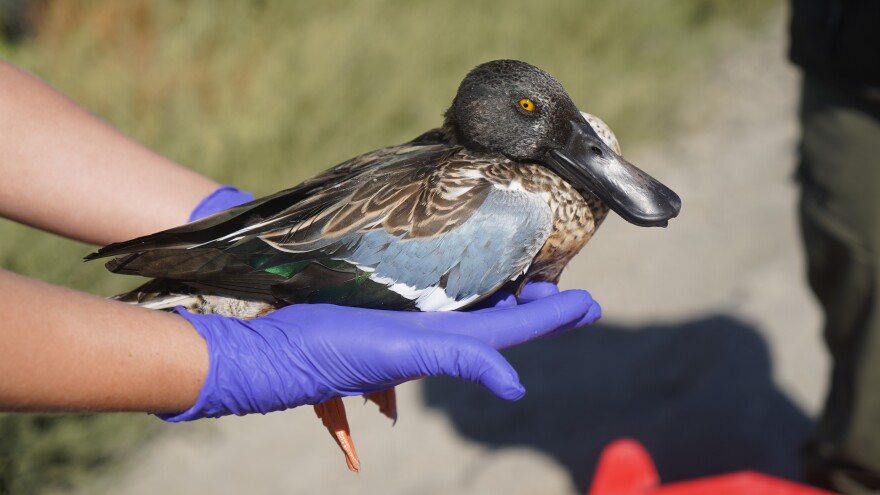This story is free to read because readers choose to support LAist. If you find value in independent local reporting, make a donation to power our newsroom today.
Long Beach Aquarium Animal Doctors Joined Statewide Effort to Save Sick Birds at Tulare Lake

Topline:
The state Department of Fish and Wildlife and UC Davis's Oiled Wildlife Care Network (OWCN) coordinated an effort to treat birds who ingested a botulism-causing bacteria at Tulare Lake.
What birds were affected: More than 1,200 birds have been affected by the illness and 850 birds survived since late August, according to the latest figures from the OWCN. The most commonly affected birds were the northern shoveler and white-faced ibis, both of which are commonly found in wetlands.
What botulism does: Similar to botulism in humans, birds affected by avian botulism can become dehydrated, sluggish, and even partially paralyzed. In serious cases, it can be fatal.
How it's treated: The birds need to wait until the bacteria passes through their system in order to recover. They are then released back into the wild, sometimes less than a day after beginning their treatment, according to animal care expert Erin Lundy of the Aquarium of the Pacific, who assisted with the rescue efforts.
The backstory: Tulare Lake was once the largest freshwater lake in the United States west of the Mississippi River, but it was largely drained by the early 20th century. However, parts of the lake can reappear during wet years, including after the massive rains in winter 2023. It attracted both local and migratory birds, but they began to fall ill this summer due to a bacteria growing in the water that caused avian botulism, according to Lundy.
What's next: Since the number of animals affected by the toxic bacteria has dwindled, the state has demobilized its temporary facility. The last birds to be treated were admitted on Nov. 6.








